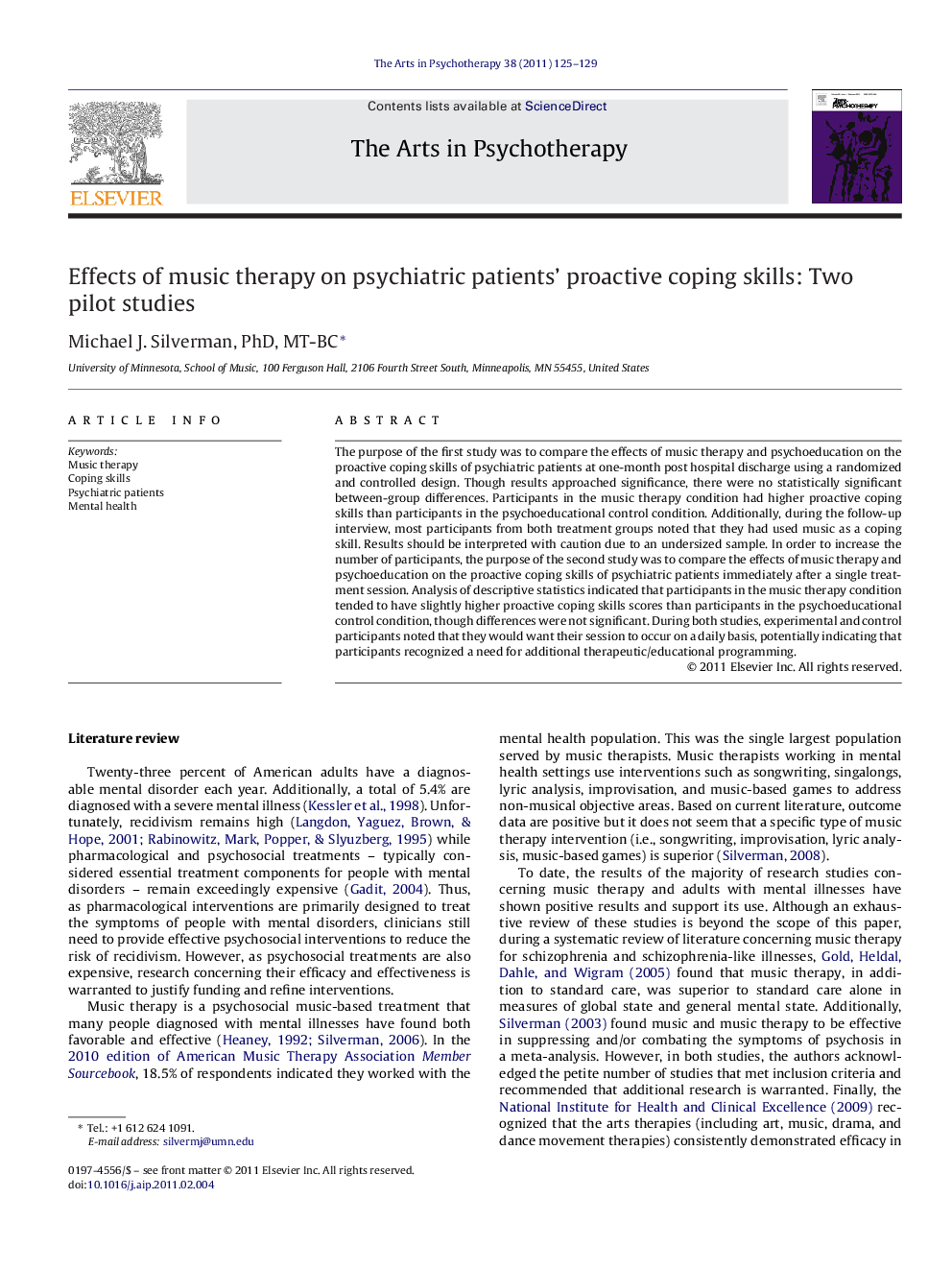| Article ID | Journal | Published Year | Pages | File Type |
|---|---|---|---|---|
| 343840 | The Arts in Psychotherapy | 2011 | 5 Pages |
The purpose of the first study was to compare the effects of music therapy and psychoeducation on the proactive coping skills of psychiatric patients at one-month post hospital discharge using a randomized and controlled design. Though results approached significance, there were no statistically significant between-group differences. Participants in the music therapy condition had higher proactive coping skills than participants in the psychoeducational control condition. Additionally, during the follow-up interview, most participants from both treatment groups noted that they had used music as a coping skill. Results should be interpreted with caution due to an undersized sample. In order to increase the number of participants, the purpose of the second study was to compare the effects of music therapy and psychoeducation on the proactive coping skills of psychiatric patients immediately after a single treatment session. Analysis of descriptive statistics indicated that participants in the music therapy condition tended to have slightly higher proactive coping skills scores than participants in the psychoeducational control condition, though differences were not significant. During both studies, experimental and control participants noted that they would want their session to occur on a daily basis, potentially indicating that participants recognized a need for additional therapeutic/educational programming.
► At one-month follow-up, the music therapy group had higher proactive coping skills scores than the psychoeducational control group. ► During the follow-up interview, most participants from both treatment groups noted that they had used music as a coping skill. ► Participants consistently noted that they would want their session, regardless of condition, to occur on a daily basis.
